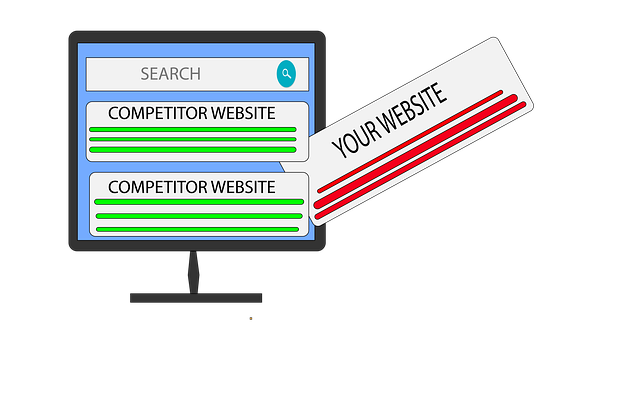The integration of chatbots into ecommerce platforms like WooCommerce is driven by evolving customer expectations for instant, personalized interactions and businesses' need to enhance engagement and improve conversion rates. Chatbots offer 24/7 availability, immediate responses, and high levels of personalization, handling tasks like product recommendations, FAQs, checkout processes, returns, and automating routine tasks. They collect valuable data on shopping patterns, enabling targeted marketing campaigns and increasing sales while freeing human agents for complex issues. Implementing chatbots in WooCommerce provides instant customer support, product recommendations, order tracking automation, and data insights, making it a strategic approach to boost user experience and business performance in the competitive ecommerce market.
In today’s digital era, the rise of chatbots in e-commerce is transforming customer engagement. WooCommerce, a powerful platform, embraces this trend with integrated chatbot solutions, enhancing user experiences and driving sales. This article delves into the strategic implementation of chatbots within WooCommerce stores, exploring their benefits, setup processes, and best practices. We’ll also look at emerging trends, such as personalized interactions, omnichannel support, voice assistants, and AI-driven shopping experiences, highlighting how chatbots can revolutionize WooCommerce commerce.
- The Rise of Chatbots in Ecommerce: Transforming Customer Engagement
- – Understanding the shift towards conversational commerce
- – Benefits of implementing chatbots in WooCommerce stores
- Integrating Chatbots with WooCommerce: A Step-by-Step Guide
The Rise of Chatbots in Ecommerce: Transforming Customer Engagement

In recent years, we’ve witnessed a significant shift in customer behavior and expectations, driving the rapid rise of chatbots in the ecommerce space. Traditional methods of customer service are no longer sufficient to meet the demands of modern shoppers who seek instant, personalized interactions. Chatbots offer 24/7 availability, immediate responses, and a level of personalization that traditional customer service often struggles to match. They can provide product recommendations, answer frequently asked questions, assist with checkout processes, and even handle basic returns or exchanges, all while offering an engaging and interactive shopping experience.
This shift towards chatbot integration in ecommerce is not just a trend but a necessary evolution. With advancements in natural language processing (NLP) and machine learning, chatbots have become increasingly sophisticated, understanding context and delivering tailored responses. As a result, businesses are leveraging these virtual assistants to enhance customer engagement, improve conversion rates, and ultimately drive sales. By automating routine tasks and providing efficient support, chatbots free up human agents to focus on more complex issues, ensuring a seamless shopping journey for every customer.
– Understanding the shift towards conversational commerce

In today’s digital age, the way businesses interact with their customers is evolving rapidly, and conversational commerce is at the forefront of this shift. Chatbots in ecommerce are no longer a futuristic concept but an essential tool for enhancing customer experience and driving sales. With the rise of online shopping, consumers expect instant and personalized interactions, and chatbots cater to this demand by providing 24/7 availability, quick responses, and tailored recommendations.
The integration of chatbots into WooCommerce, one of the most popular ecommerce platforms, offers businesses a powerful means to engage with their customer base. These AI-powered assistants can handle various tasks, from answering frequently asked questions to guiding customers through the checkout process, thereby improving conversion rates and fostering stronger customer relationships. As conversational commerce continues to gain traction, leveraging chatbots in ecommerce becomes crucial for staying competitive and meeting modern consumer expectations.
– Benefits of implementing chatbots in WooCommerce stores

Implementing chatbots in WooCommerce stores offers a myriad of benefits that can significantly enhance both customer experience and business performance. In the competitive landscape of e-commerce, a chatbot can provide instant customer support, answering common queries and offering product recommendations 24/7. This not only improves customer satisfaction but also reduces response times, allowing your team to focus on more complex issues.
Chatbots can also collect valuable customer data, providing insights into shopping patterns and preferences. Armed with this information, businesses can personalize marketing campaigns, suggest relevant products, and ultimately drive sales. Moreover, by automating routine tasks like order tracking or providing shipping updates, chatbots free up resources, enabling human agents to focus on building stronger customer relationships.
Integrating Chatbots with WooCommerce: A Step-by-Step Guide

Integrating chatbots with WooCommerce is a strategic move for any ecommerce business looking to enhance customer experience and boost sales. Here’s a straightforward, step-by-step guide to help you get started. Firstly, choose a chatbot platform compatible with WooCommerce. Popular options include those offering pre-built integrations or APIs that facilitate seamless communication between your store and the chatbot.
Next, install the chosen chatbot plugin on your WooCommerce site following the provider’s instructions. This usually involves logging into your WordPress dashboard, navigating to the Plugins section, and activating the installed chatbot plugin. Once live, configure your chatbot by personalizing its responses, setting up greetings, and defining product-specific queries. Test interactions thoroughly before making them live to ensure a smooth, intuitive customer experience.
WooCommerce chatbots are emerging as a powerful tool for enhancing customer engagement and revolutionizing conversational commerce. By integrating AI-driven chatbots into their platforms, online retailers can provide 24/7 support, offer personalized product recommendations, and streamline common customer inquiries. This shift towards interactive shopping experiences not only improves user satisfaction but also boosts sales and fosters stronger brand relationships. With the right implementation strategy, as outlined in this guide, businesses can harness the potential of chatbots to stay competitive in the dynamic world of ecommerce.
